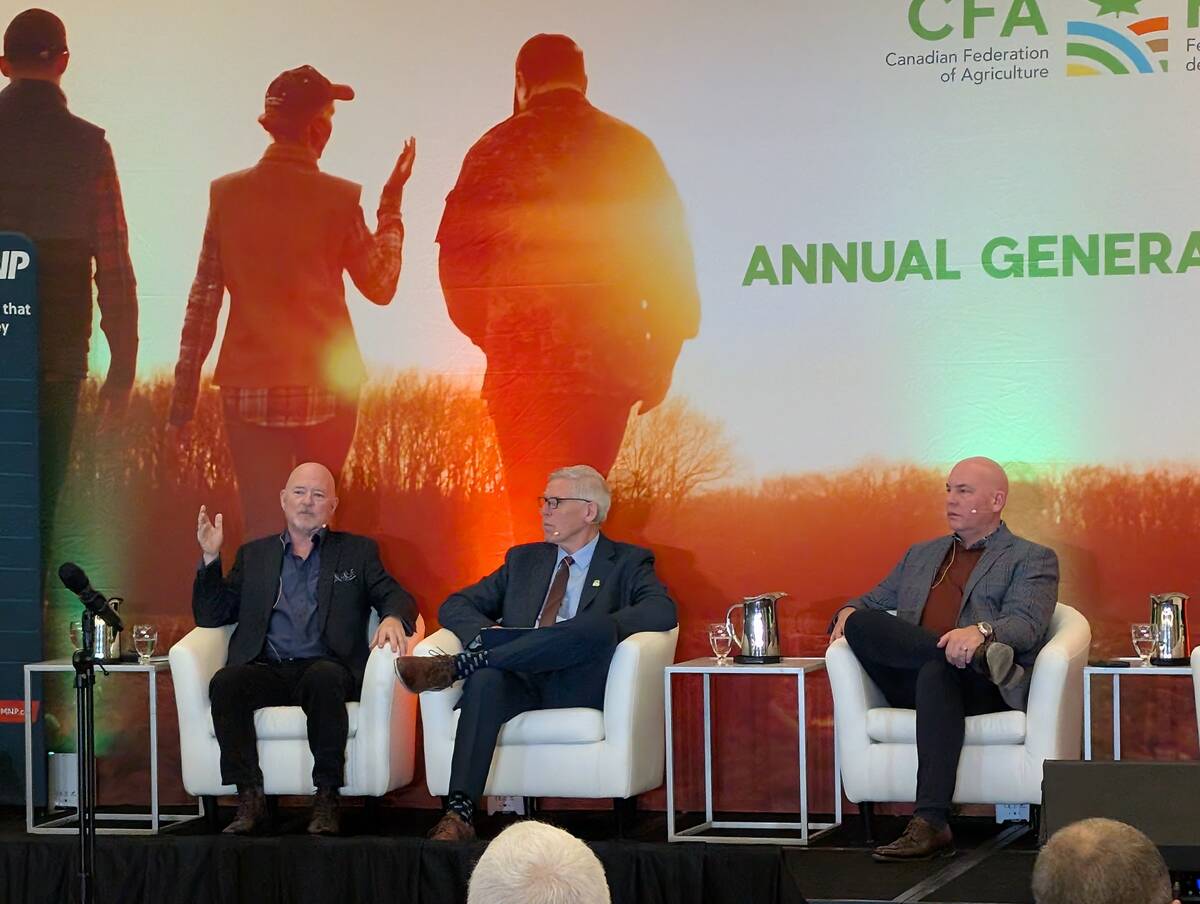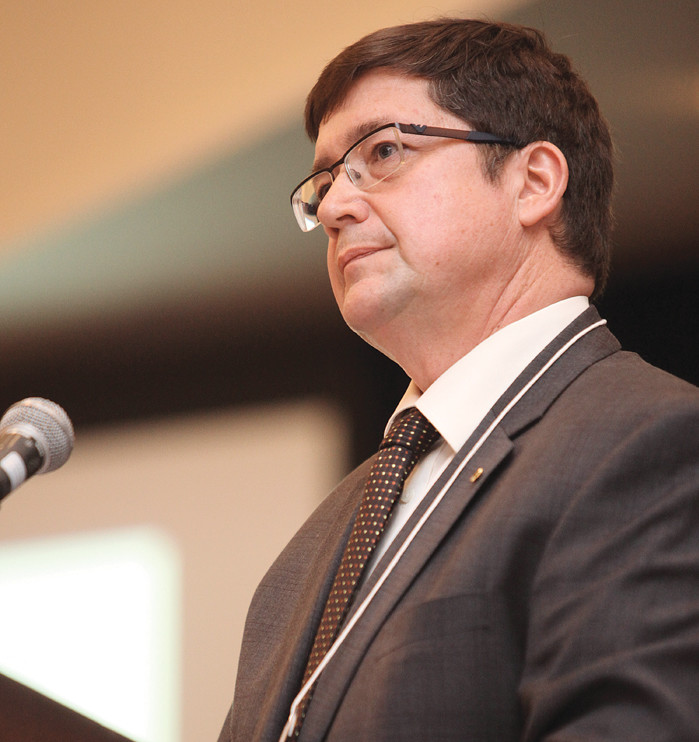Farmers who watched the agriculture debate held in Ottawa Sept. 30 should have a clearer picture of where the major parties seeking election to the House of Commons stand on farm issues, says Keystone Agricultural Producers (KAP) president Dan Mazier.
Mazier was pleased important agricultural issues were discussed, but also by the fact candidates were mostly civil.
“I was impressed with how well it was run, how well the candidates behaved,” he said in an interview Oct. 2 from his farm near Justice, Man. “It was done in a true agriculture type of way. I gained a lot of information for myself. I thought it was really well run and I want to thank each one of the candidates for participating.”
Read Also

Unified ag front urged for Next Policy Framework
Panelists at the Canadian Federation of Agriculture (CFA) annual general meeting say agriculture groups must stay focused and united in consultations for the recently-announced next policy framework
The two-hour-long debate, which included representatives from Conservative, NDP, Liberal, Bloc Quebecois and Green parties, was organized by the Canadian Federation of Agriculture and broadcast live by Glacier FarmMedia, which owns the Manitoba Co-operator. A recording of the debate is available here.
Farmers learned some new things, Mazier said, including that the federal government will compensate supply management farmers if Canada’s signing on to the Trans-Pacific Partnership causes them economic harm.
“If there is loss on your farm, (or) the processing side, you will be compensated,” Conservative MP and Agriculture Minister Gerry Ritz said in the debate.
NDP Agriculture Critic Malcolm Allen also mused about scrapping the AgriStability program and starting over. There have been lots of complaints about it since the federal and provincial governments agreed to reduce the level of farm support it offers, channelling some of the saved money into other areas designed to improve farm income.
While the opposition parties complained the Harper government has cut agricultural research and research stations, Ritz said funding has not been reduced. He did, however, acknowledge some facilities and programs were consolidated.
It’s important to spend tax money wisely and cutting research budget the government could have done a better job had it consulted with farmers first about how to do it, Mazier said.
“They sort of took a ramrod approach without fully considering the ramifications,” he said.
The former Liberal government cut research too, Mazier added.
Mazier said he’s also worried about losing the results from publicly funded research, alluding to recent reports of some research station libraries being closed.
“The public paid for that research and it shouldn’t be thrown out,” he said. “It’s disgusting. It’s almost like book burning. That wasn’t raised in the debate. There should be some provision to keep all that data for the public even if you shut down the research.”
















